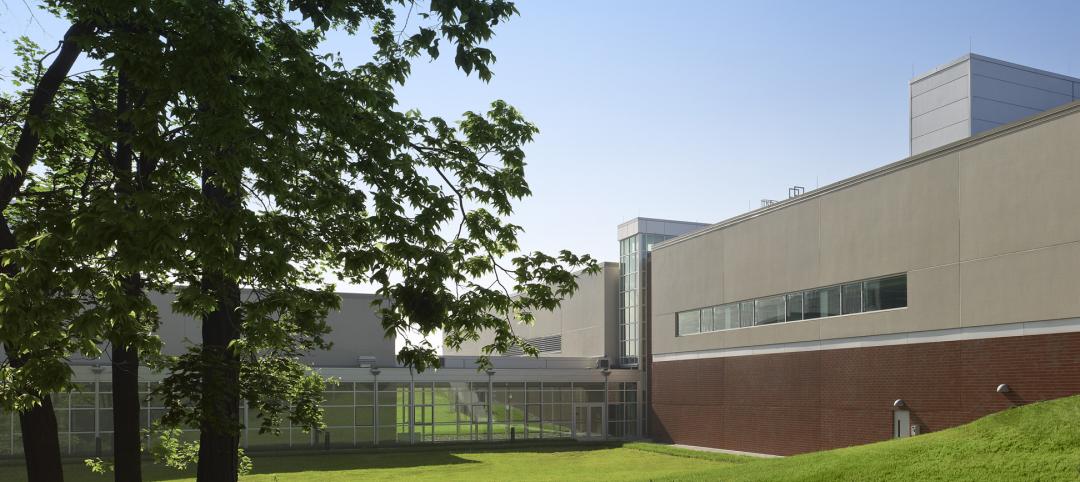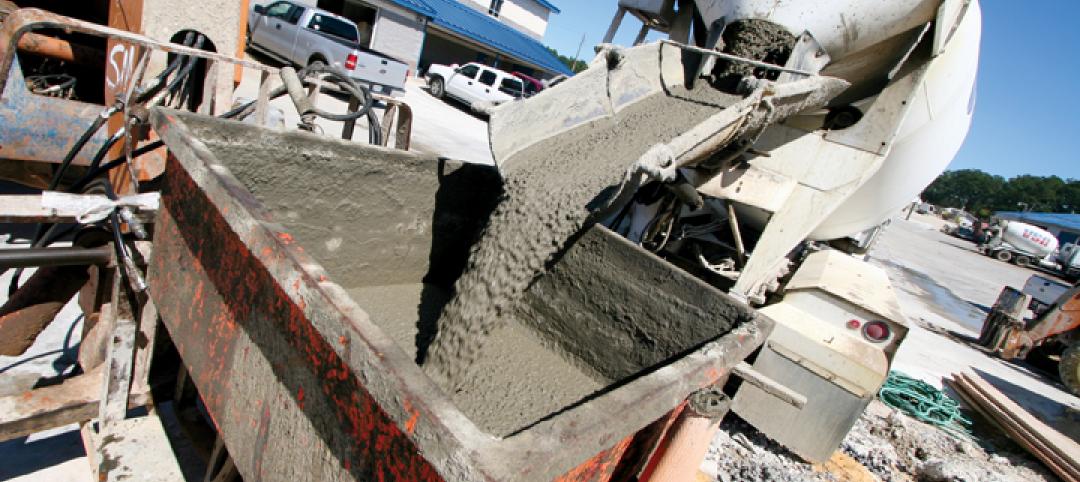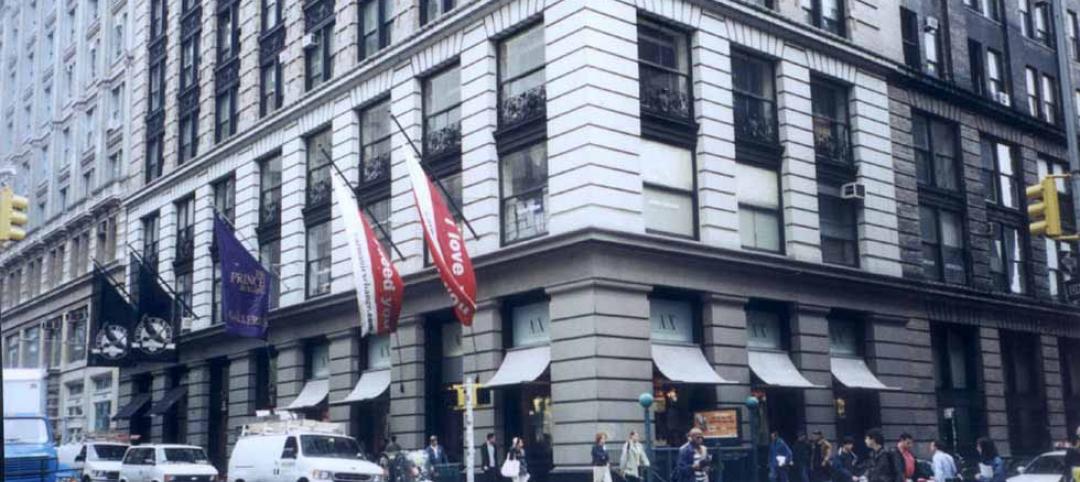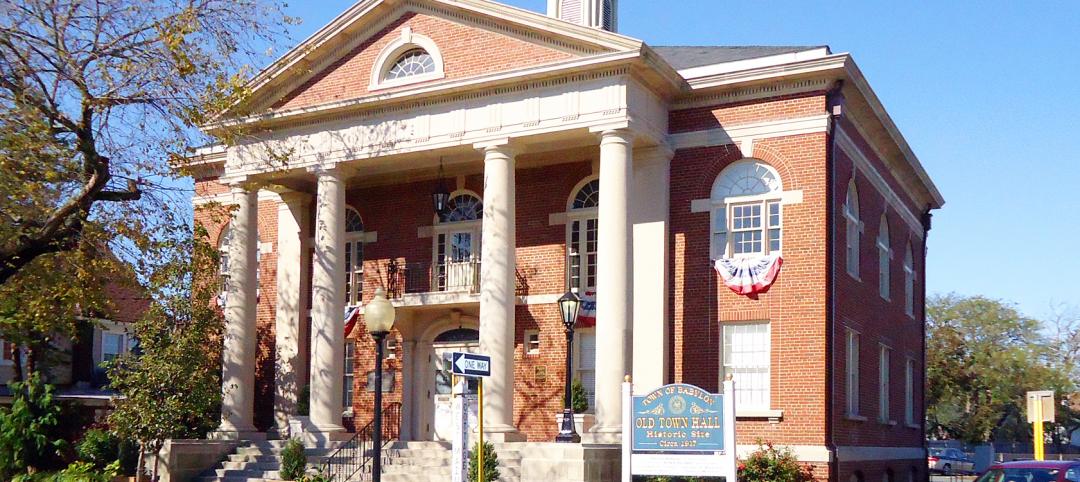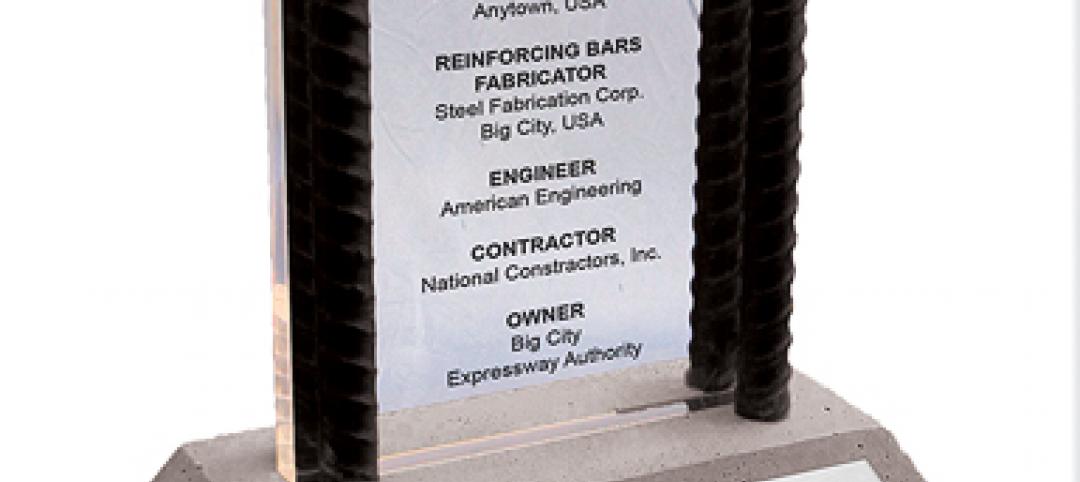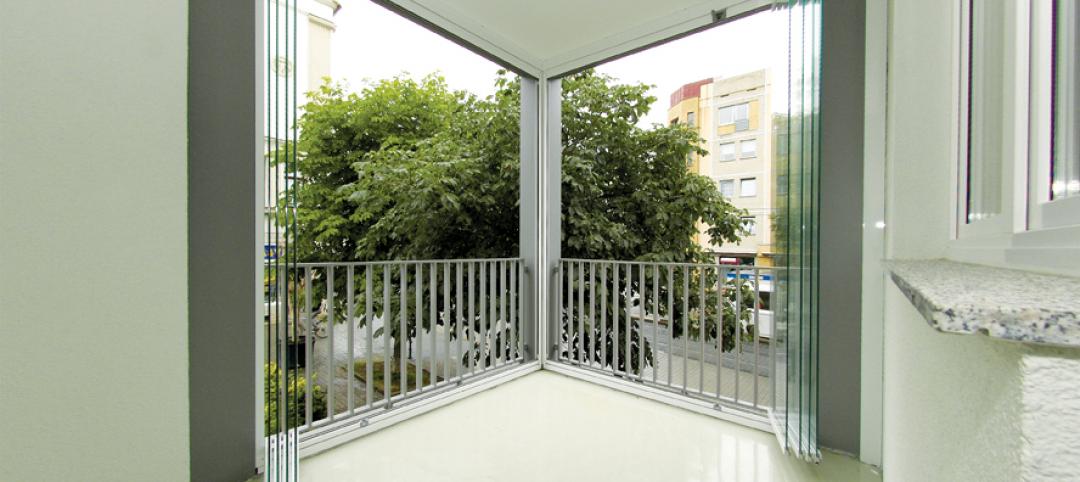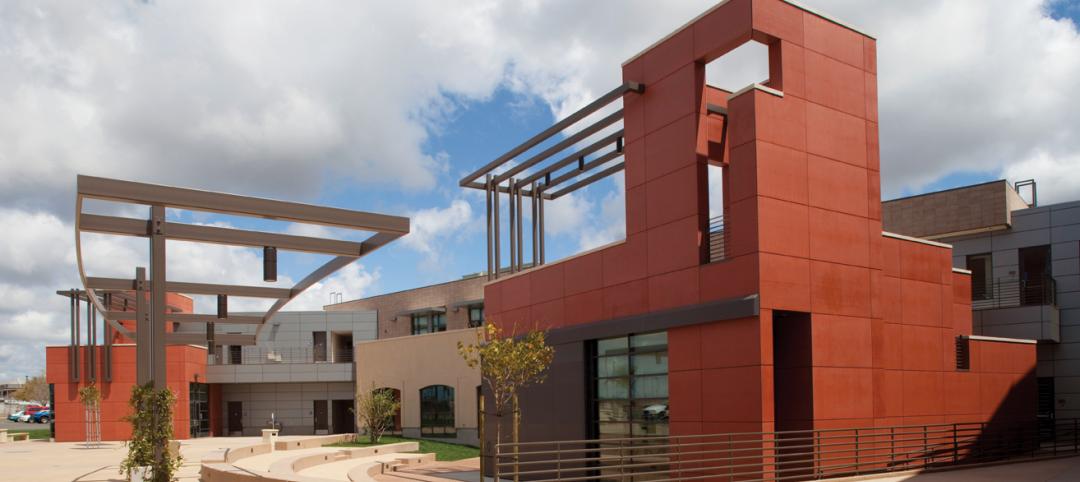Johns Hopkins Hospital operates a dense, urban medical campus in Baltimore with an outsize global reputation. Nestled amid the pioneering clinical and research facilities is the Nelson-Harvey Building, a 1970s-era modernist structure with narrow ribbon windows and long expanses of brick colored to match the nearby Halstead Building and the 1880s Billings Building, a campus landmark with its classic dome.
After opening a major new facility next door, the Zayed Bloomberg complex, the hospital began renovating existing facilities on its East Baltimore campus. The nine-story Nelson-Harvey was a candidate for an interior renovation.
After decades of wear, the hand-laid brick envelope of the Johns Hopkins nine-story Nelson/Harvey inpatient facility began failing. The architectural firms Wilmot Sanz and Ayers Saint Gross needed a solution that met two criteria: one, that is was lightweight enough to prevent any need for additional superstructure or foundation costs; and two, that the facility would be able to stay operational during the exterior renovation.
“Late in the game, during design development, the client determined that we should also address envelope issues,” said Dan McKelvey, an associate principal and building envelope expert with Ayers Saint Gross, describing the existing, hand laid brick façades with a concrete masonry unit (CMU) backup on structural steel. “There were problems including cracking and deflecting brick, and the window system was outdated. The building had no insulation in the wall system, either.”
Factory-applied foam insulation
SLENDERWALL® met the requirements. Its 28 lbs. per square foot specification and unique composite construction allowed for the re-cladding to take place without the removal of the old fascia. The 158 SLENDERWALL panels (27,164 sf) were designed with a factory-applied Endicott brick facing, maintaining continuity with the campus and the original 1970’s exterior.
Johns Hopkins also chose to include factory-applied closed-cell foam insulation and the proprietary H2Out advanced sealant rain screen system with leak detection. The addition of these options provided not only savings in time and on-site trades, but insurance against future air and water infiltrations, as well as continuous insulation adding significantly to the enclosure’s thermal performance and excellent acoustical STC ratings.
The project is being certified under Baltimore City’s Green Stars program, at a level equivalent to LEED Silver. This is the first healthcare project to seek certification under this program.
In March 2013, SMC began delivery to the contractor, Whiting-Turner. Completion of the cladding portion of the project concluded in June. The short schedule showcased the benefits of SLENDERWALL in reduced times and costs for production, shipping and installation, as well as decreasing the need for some on-site trades.
SLENDERWALL architectural precast concrete panel system uses proven technologies to connect a thin layer of fiber-reinforced architectural precast concrete with an interior steel-stud frame ready for drywall application to create a true composite exterior/interior wall. The panels are also available with optional factory-applied continuous closed-cell foam insulation and windows, offering savings in time and on-site labor.
Choosing these along with the proprietary H2Out advanced sealant system, may qualify a project for a no-moisture intrusion guarantee, giving a true one-call responsibility for the building envelope.
For more information:
Easi-Set Worldwide
1-800-547-4045
Fax 1-540-439-2541
info@easiset.com
www.SlenderWall.com
Related Stories
| Jan 4, 2012
New LEED Silver complex provides space for education and research
The academic-style facility supports education/training and research functions, and contains classrooms, auditoriums, laboratories, administrative offices and library facilities, as well as spaces for operating highly sophisticated training equipment.
| Jan 3, 2012
Gilbane awarded $88M Contract for Ohio elementary school construction
The new award, which comprises the construction of five new elementary schools and demolition of 11 older facilities, is the latest K-12 building program managed by Gilbane for the Ohio School Facilities Commission since 1998.
| Jan 3, 2012
AIA Course: New Developments in Concrete Construction
Earn 1.0 AIA/CES learning units by studying this article and successfully completing the online exam.
| Dec 20, 2011
Aragon Construction leading build-out of foursquare office
The modern, minimalist build-out will have elements of the foursquare “badges” in different aspects of the space, using glass, steel, and vibrantly painted gypsum board.
| Dec 16, 2011
Stalco Construction converts Babylon, N.Y. Town Hall into history museum
The project converted the landmark structure listed on the National Register of Historic Places into the Town of Babylon History Museum at Old Town Hall.
| Dec 12, 2011
Skanska to expand and renovate hospital in Georgia for $103 Million
The expansion includes a four-story, 17,500 square meters clinical services building and a five-story, 15,700 square meters, medical office building. Skanska will also renovate the main hospital.
| Dec 12, 2011
CRSI design awards deadline extended to December 31
The final deadline is extended until December 31st, with judging shortly thereafter at the World of Concrete.
| Dec 10, 2011
Energy performance starts at the building envelope
Rainscreen system installed at the west building expansion of the University of Arizona’s Meinel Optical Sciences Center in Tucson, with its folded glass wall and copper-paneled, breathable cladding over precast concrete.
| Dec 10, 2011
Turning Balconies Outside In
Operable glass balcony glazing systems provide solution to increase usable space in residential and commercial structures.
| Dec 10, 2011
BIM tools to make your project easier to manage
Two innovations—program manager Gafcon’s SharePoint360 project management platform and a new BIM “wall creator” add-on developed by ClarkDietrich Building Systems for use with the Revit BIM platform and construction consultant—show how fabricators and owner’s reps are stepping in to fill the gaps between construction and design that can typically be exposed by working with a 3D model.


